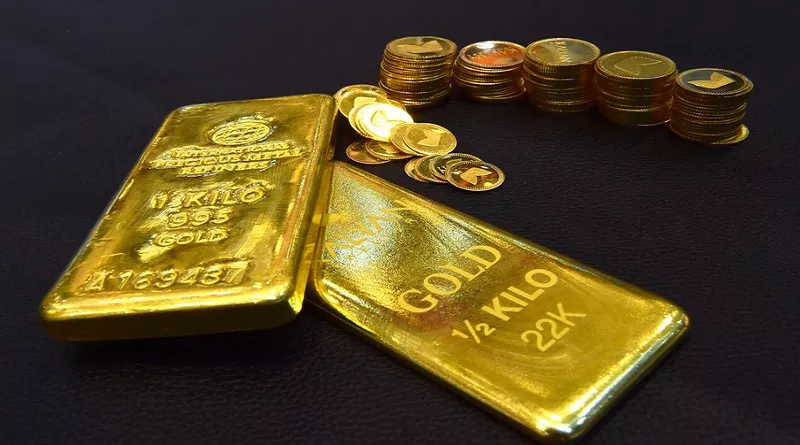Gold prices surged to their highest levels since May as escalating tensions in the Israel-Hamas conflict drove investors to seek haven assets. In contrast, oil prices experienced a slight dip after a significant 4% gain in the previous session, as concerns grew that the conflict might extend beyond Gaza, potentially impacting Middle East oil supplies.
On Monday, the price of gold on the Multi Commodity Exchange (MCX) for the December 2023 expiry contract opened at ₹57,000 per 10 grams and swiftly reached an intraday high of ₹57,400 shortly after the commodity market’s opening.
Brent crude, on the other hand, fell by 18 cents, or 0.2%, to $87.97 per barrel, while U.S. West Texas Intermediate crude eased by 16 cents, or 0.2%, to $86.22 per barrel. Although Israel’s oil production is relatively low, market concerns are centered around the potential impact on Middle East oil supplies if the conflict escalates further.
The conflict between Israel and the Palestinian Islamist group Hamas has intensified, with Hamas launching a “surprise attack” on Israel on October 7, firing rockets into southern and central parts of the country. The Israel Defense Forces (IDF) reported over 700 casualties and 2,300 injuries in what they referred to as the “worst massacre of Israeli civilians” by Hamas.
The ripple effects of the Israel-Hamas war have extended to air travel, with major airlines suspending flights to and from Israel. Tel Aviv’s Ben Gurion International Airport has experienced numerous cancellations and delays, leaving travelers stranded.
The attack by Hamas has roots in long-standing tensions, including a dispute over the Al-Aqsa Mosque, which is sacred to both Muslims and Jews. Recent years have seen an increase in visits to the site by Israeli religious nationalists, leading to heightened tensions. During the Jewish harvest festival of Sukkot, hundreds of ultra-Orthodox Jews and Israeli activists visited the compound, leading to accusations by Hamas that Jews were praying there in violation of the status quo agreement. These developments ultimately contributed to the escalation of violence and the ongoing conflict.
As the situation in the Middle East remains fluid, the demand for haven assets like gold is expected to persist, while the oil market remains sensitive to potential disruptions in the region’s oil supplies. Investors and analysts are closely monitoring the developments and their potential impact on global markets.

